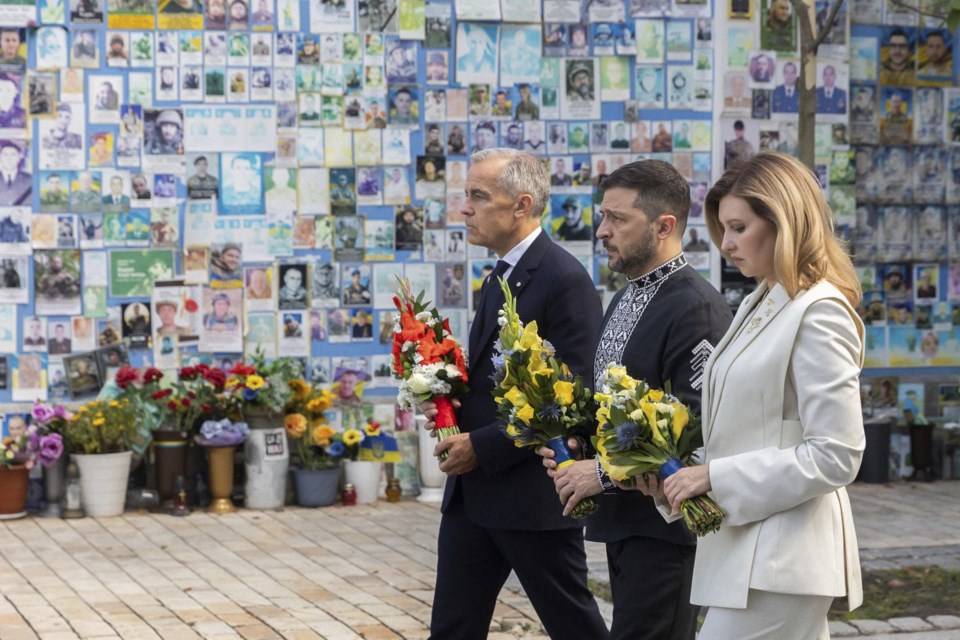OTTAWA — Canada and other allies need to maintain "maximum pressure" on Moscow, Prime Minister Mark Carney said Friday after Russian President Vladimir Putin threatened to target foreign troops if they are deployed to Ukraine.
Putin "has not yet come to terms with the need for peace," the prime minister said in response to a question from a reporter at a news conference in Mississauga, Ont.
"Mr. Putin is the cause of this war, he's the reason for the killing," he said. "He is not going to dictate the terms of the peace."
Carney said allied pressure on Russia would include imposing new sanctions, ensuring Ukrainian forces are armed and that Ukraine is supported "when there is a cessation of hostility." He said the next round of sanctions is now being prepared by Ukraine's allies.
The Associated Press reported that Putin said Friday that any foreign troops deployed to Ukraine, particularly while the war is ongoing, would be considered "legitimate targets" by Moscow’s forces.
Putin also dismissed the idea of peacekeeping forces in Ukraine after a final peace deal, saying "no one should doubt" that Moscow would comply with a treaty.
Carney's spokespeople said on Thursday that he told allies during a virtual meeting that morning, that Canada is willing to deploy "direct and scalable military assistance" in a post-ceasefire Ukraine.
After that meeting, French President Emmanuel Macron said 26 of Ukraine’s allies have pledged to deploy a "reassurance force" following a ceasefire or peace agreement.
Macron said the countries committed to deploying troops in Ukraine, or maintaining a presence on land, at sea, or in the air.
Earlier this year Canada pledged $2 billion in military aid to Ukraine. When Carney made his first visit to Kyiv as prime minister in August he said those funds would go to purchase drones, armoured vehicles and other munitions for Ukraine.
Carney first announced the funding in June at the G7 summit in Alberta.
The prime minister said roughly 40 per cent of the fund will go to urgently needed supplies, including vehicles, arms and medical equipment. Another third of the funding will support purchases from a list of items prioritized by NATO, including U.S. equipment, munitions and air defence capabilities.
Canada also committed to buying drone, counter-drone and electronic warfare capabilities for Ukraine.
While in Kyiv for Ukraine's Independence Day, Carney also outlined $31 million in humanitarian aid and other supports for the war-torn nation's reconstruction in coming years.
— With files from Anja Karadeglija and Craig Lord
This report by The Canadian Press was first published Sept. 5, 2025.
Catherine Morrison, The Canadian Press



